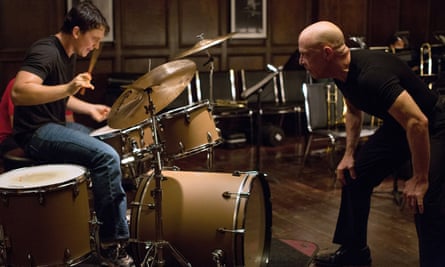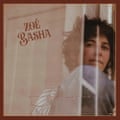I went to watch some jazz and everyone laughed at me. Family, friends, anyone on the bus who heard me and my friend talking on the way there, all sniggering, scoffing, smirking. There ought to be a jazz standard called Sniggering, Scoffing, Smirking.
What’s so funny? I think that Fast Show sketch is partly to blame – John Thomson as Louis Balfour, host of a TV programme called Jazz Club, brilliantly, if unfairly, sending up an entire genre of music. Fans of classical music, opera, drill, grime, folk, punk or whatever don’t get this kind of treatment. If you’re into jazz you’re to be mocked, because you’re either an old fart, a fervent hipster or a chin-stroking pseud. Or possibly all three. I’m none of those, arguably.
Jazz was always playing in our house, and I grew to love some of it. Don’t get me wrong: at school I was more into Led Zeppelin, Van Morrison, John Martyn and whatnot, but on the quiet I was also entranced by Mose Allison, Bill Evans, Miles Davis, Count Basie and plenty more. The names on the spines of my dad’s records were irresistible. The saxophone player Eddie Lockjaw Davis, for example. Oof, what a guy he must be. He had me at Lockjaw. I was a fan before the needle touched the vinyl. I got a fair amount of stick at school for this. One lad, a big Deep Purple fan who wasn’t averse to a bit of air guitar, asked what jazz fans did instead of air guitar. He started dancing about blowing an air saxophone. Everyone laughed. I didn’t much care.

In a scene towards the end of Whiplash, one of my favourite films, the young jazz drummer Andrew, played by Miles Teller, is on the telephone to his ex-girlfriend asking her, without success, to come to a jazz concert he’s playing. OK, he concedes, it’s not for everyone. He can say that again. On a first date relatively recently, I cooked a nice dinner that we ate together, with Keith Jarrett’s Köln Concert playing in the background. The food went down well; Keith Jarrett less so. “Can you turn this bloody plink-plonk music off, please?” she said.
Back in the last century, the Birmingham Jazz Society used to meet on Sunday nights at the Strathallan Hotel on the Hagley Road. After seeing Meat Loaf or somebody like that, along with several thousand others on a Saturday at the NEC, spending the following evening with barely a hundred jazz buffs in a hotel conference room felt almost transgressive, like a secret society of which I was by far the youngest member. Some of the acts I’d heard of, some I hadn’t, but the air of mystery was always the same. How had they made their way from around the country or – not unusually – the US or mainland Europe to be there playing for us? How could they make a living doing it? How and why had they got so luminously brilliant at playing stuff that relatively few people were into?
There was so much I didn’t understand – including, frankly, a good deal of the music. I decided each piece came in three sections. In section one the musicians would all play the same tune. Then came section two, in which it seemed to me that, having started off playing the same tune, they went off on various tangents, together and separately. I’ll be honest: there were times when it did sound to my untutored ear like a dozen or more players all playing whatever suited them. This middle section could go on for five, 10, 30 minutes. Occasionally someone would shout “Yeah!” for a reason that wasn’t always clear to me – which was, in retrospect, a bit Fast Show. Often applause would break out, again for reasons unclear. I gave up trying to join in. All I knew was that I loved the beginning and was mesmerised as well as baffled by the middle bit. And come section three, when the musicians magically reconvened, returning to the tune they were playing in the first place … well, that lifted me up into the air in a way not much else did, then or now.
I daresay I was, am, missing the point. Call me a dilettante – I don’t care. Dilettante in the dictionary: a person who loves the fine arts but in a superficial way and without serious purpose. Yes, whatever. It makes me happy. And never happier than last Saturday night in the remarkable 606 Club in Chelsea. The Fraser Smith Quartet were playing. The eponymous saxophonist – from Birmingham, as it happens – was accompanied by piano, double bass and drums. Disappointingly, but encouragingly too, I’m no longer the youngest in the room. Now I’m one of the oldest. It’s a mixed congregation. The relatively young are in attendance. Some of them really get it; others seem a bit bewildered to be there. I surmise a handful of couples are there on first dates.
On stage the musicianship is off the scale. Four players who I’d never heard of until that very day. Having tried, and failed, to learn the saxophone, I find every clean note that is blown miraculous, so I’m easily impressed. The double bass player is incredibly young-looking and prodigiously good. But his jacket is too big for him and I’m stressing that the sleeve is getting in the way. The drummer is much older – my age! – and I can’t take my eyes off him. When I was writing my dad’s eulogy, his mate told me that when my dad saw Buddy Rich play in the 50s he reported back that Rich’s drumming was “like a power station starting up”. That fits the bill here, for this drummer, Steve Brown – very well-known in jazz circles, it turns out, but elsewhere hardly known at all.
The same questions crowd in: how did these people get so good? Where do they live? How do they spend their daylight hours? What do they do when they’re not electrifying the air in basement jazz clubs? It all remains a mystery to this jazz dilettante. Long may it stay this way.
-
Adrian Chiles is a broadcaster, writer and Guardian columnist
-
Do you have an opinion on the issues raised in this article? If you would like to submit a response of up to 300 words by email to be considered for publication in our letters section, please click here.
Source: theguardian.com


